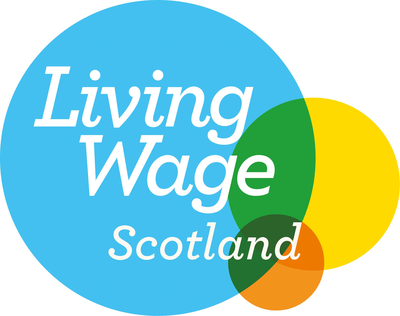by Christine McCaig, Living Wage Scotland Projects Coordinator
Research from the Living Wage Foundation (LWF) has found that low paid workers are five times more likely to be in insecure jobs than those paid the real Living Wage.
Scotland has the highest proportion of real Living Wage jobs in the UK- with 91% of workers paid at least the real Living Wage. Today’s report confirms that Scotland outperforms other parts of the UK when it comes to work security, with the lowest proportion of insecure jobs.
Despite these successes, around one in six jobs in Scotland are insecure, leaving nearly half a million workers uncertain of the level of pay they can rely on to cover their living costs. This is unjust, particularly at a time of rising costs where people are struggling to make ends meet.
Those at the sharpest end are the 250,000 workers paid below the real Living Wage and in insecure work. The recent Working Lives Scotland report from CIPD revealed that a fifth of all employees lose sleep over money worries and nearly a third say their employer is not doing enough to support their financial wellbeing. This demonstrates the need for further action to improve wages and work security.
There has been a slight reduction in the number of insecure workers in Scotland since July 2021. However, latest ONS figures reveal that Scotland currently has the highest percentage of zero-hours workers in UK having doubled in the last decade to a record high of 94,000.
Income unpredictability makes it difficult for workers to manage day-to-day expenses, cover unexpected costs and manage financial shocks, contributing to the rising tide of poverty.
The LWF’s Precarious Pay and Uncertain Hours report finds 90% of UK workers do not receive full payment when shifts are cancelled, with more than a quarter receiving no payment whatsoever. A similar proportion (86%) fall short of the four-week notice period for shifts benchmark required for Living Hours accreditation.
The polling also suggests that insecure workers could be up to £600 worse off each year due to the income implications faced by those in insecure work. For example, 27% workers advised they pay higher travel costs due to being called in on short notice, while 17% have had to pay higher childcare costs.
Insecure work can be bad for business too. Research has found that anxiety caused by financial stress impacts on quality of work, and poor staff morale is linked to decreased productivity, higher absenteeism and poorer staff retention, which in turn, costs business through increased recruitment and training costs.
The campaign for the real Living Wage and Living Hours is at the frontline of Scotland’s ambitions to become a fair work nation by 2025. We know that employers have a key role to play in ending the injustice of poverty in Scotland. Employers can take action by becoming Living Wage and Living Hours accredited to ensure that every worker in Scotland has access to well-paid, secure employment.
